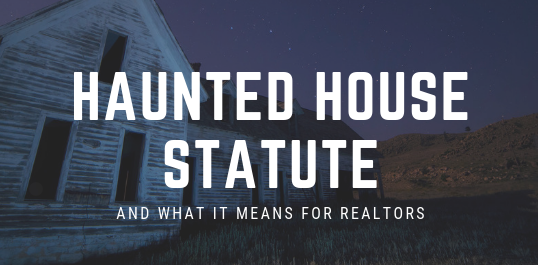Halloween is just around the corner, and Realtors want to know: Do I have to tell a potential buyer that a property might be a “haunted house”?
In 2009 this was a legal gray area. Does the Realtor owe a duty to the buyer to make an inquiry about past events in the house? Can a buyer sue a Realtor for psychological damages if past events weren’t disclosed and the buyer claims the house is haunted?
The answer to both questions, as of 2010, is “no." In 2010 the legislature definitively passed Statute 17-10-101, otherwise known in the industry as the “Haunted House Statute.” This statute defines houses as psychologically impacted if there was a homicide, suicide or felony on the property. It further states that this is not a material fact of information to disclose during a real property transaction, and that a Realtor cannot be sued as a result of not disclosing , inquiring, or releasing information if a property is psychologically impacted.
What it means for the buyer: Since this information is not legally available from the agents, there are a few alternative paths if this would impact your purchase:
- Ask politely – The Realtor might consent to an inquiry, with no fear of legal repercussions.
- Check local news – A savvy researcher can find past events for a property if the events made the news or are in local publications.
What this means for the Realtor: If you have this knowledge, use your best judgement in passing it along. Some buyers will walk right off the property. Others don’t put much stock in the information. If a potential buyer asks about psychological impact on the property, a Realtor in the state of Arkansas does not have to disclose it, and has no legal duty to inquire after the information. As always, when in doubt consult with your supervising broker.

